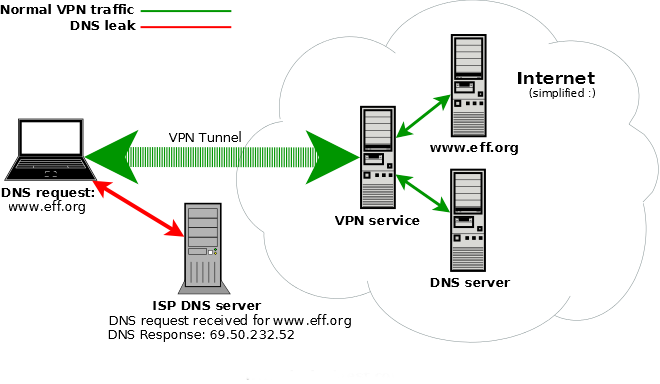DNS leaks- problem when using free Wi-fi
According to Kaspersky lab
using a VPN when you connect to a public Wi-Fi network, you’ll effectively be using a ‘private tunnel’ that encrypts all of your data that passes through the network. This can help to prevent cybercriminals – that are lurking on the network – from intercepting your data.
Under certain conditions, even when connected to the anonymity network, the operating system will continue to use its default DNS servers instead of the anonymous DNS servers assigned to your computer by the anonymity network. DNS leaks are a major privacy threat since the anonymity network may be providing a false sense of security while private data is leaking.
70% of tablet owners and 53% of smartphone / mobile phone owners stated that they use public Wi-Fi hotspots. However, because data sent through public Wi-Fi can easily be intercepted, many mobile device and laptop users are risking the security of their personal information, digital identity, and money. Furthermore, if their device or computer is not protected by an effective security and anti-malware product… the risks are even greaterSolution....VPN
using a VPN when you connect to a public Wi-Fi network, you’ll effectively be using a ‘private tunnel’ that encrypts all of your data that passes through the network. This can help to prevent cybercriminals – that are lurking on the network – from intercepting your data.
Some ISP's are now using a technology called 'Transparent DNS proxy'. Using this technology, they will intercept all DNS lookup requests (TCP/UDP port 53) and transparently proxy the results. This effectively forces you to use their DNS service for all DNS lookups.
Free VPN list


